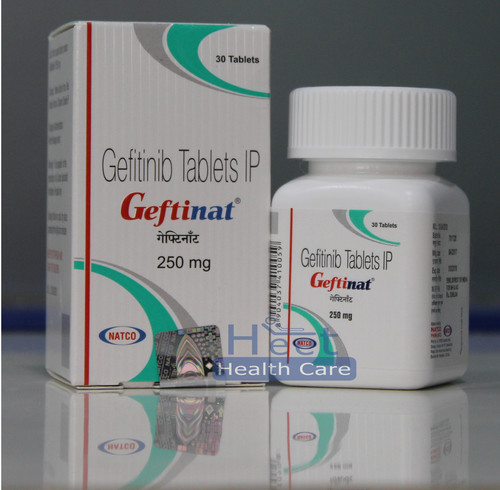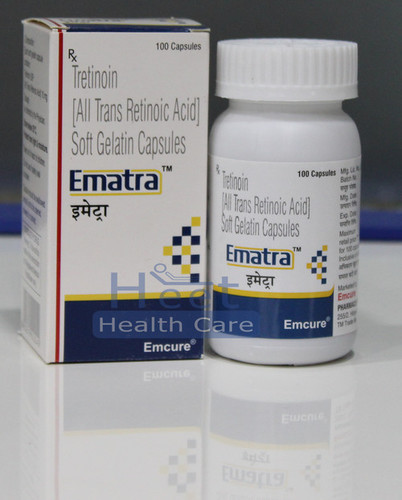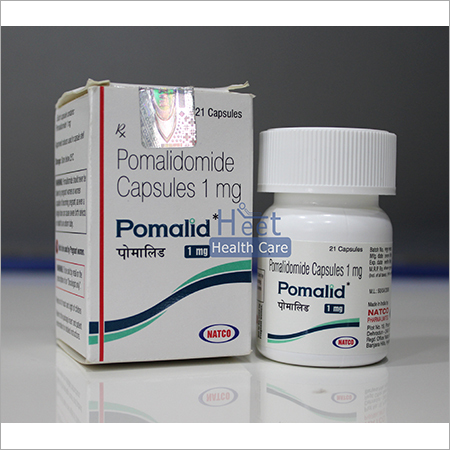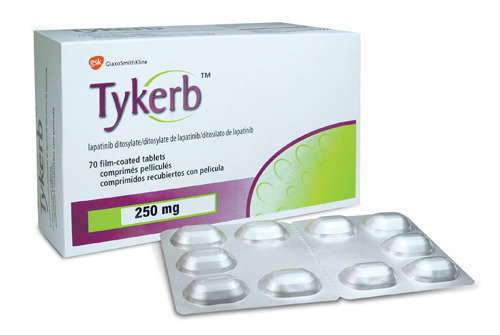Regorafenib Tablets
Regorafenib Tablets Specification
- Origin
- India
- Dosage Form
- Tablet
- Enzyme Types
- Regorafenib Tablets
- Fermentation Smell
- Normal Smell
- Storage Instructions
- Dry & Cool Place
- Shelf Life
- 1 Years
Regorafenib Tablets Trade Information
- Minimum Order Quantity
- 1 Box
- Payment Terms
- Letter of Credit at Sight (Sight L/C), Paypal, Cash in Advance (CID), Cheque, Cash Advance (CA)
- Supply Ability
- 500 Boxes Per Day
- Delivery Time
- 1 Week
- Sample Available
- Yes
- Sample Policy
- Within a certain price range free samples are available
- Main Export Market(s)
- Australia, Central America, North America, South America, Eastern Europe, Western Europe, Middle East, Africa, Asia
- Main Domestic Market
- All India
About Regorafenib Tablets
A drug called regorafenib is prescribed to treat specific cancers. It is a targeted therapy that stops the growth and spread of cancer cells by blocking particular enzymes and growth factors.
The following are some potential advantages of Regorafenib tablets:
Regorafenib has been given the go-ahead to treat metastatic colorectal cancer (mCRC) that has advanced after receiving routine treatments. It can aid in reducing the growth of tumors and increase general survival in individuals with this kind of cancer.
Treatment of Gastrointestinal Stromal Tumors: Patients with GIST who have previously received treatment with drugs like imatinib and sunitinib may also be prescribed rogorafenib. In this population of patients, it may be useful in slowing the course of the disease and extending survival.
Regorafenib is a targeted therapy that specifically inhibits a number of protein kinases involved in the development of blood vessels that supply the tumor and the microenvironment surrounding the tumor. Comparing this customized strategy to conventional chemotherapy can result in greater efficacy and perhaps fewer adverse effects.
Benefits of Regorafenib tablets are:
4. Targeted Therapy: Regorafenib is a targeted therapy, which means it focuses on a few chemicals and pathways that are important in the development and spread of cancer cells. In comparison to conventional chemotherapy, this may result in a more successful treatment with perhaps fewer adverse effects.
Regorafenib Tablet Uses:
1. Regorafenib tablets are used to treat advanced or metastatic colorectal cancer that has spread despite prior treatments.
2. They are indicated for the treatment of gastrointestinal stromal tumours (GIST) that are unresponsive to conventional therapies.
3. Hepatocellular Carcinoma: Patients who have previously had sorafenib therapy are also recommended to use regorafenib tablets for the treatment of hepatocellular carcinoma, a kind of liver cancer.
Regorafenib tablet side effects:
1. Weakness or weariness is one of the most frequent adverse effects of regorafenib.
2. Diarrhoea: While using this drug, some people may suffer diarrhoea.
3. Blood pressure can rise as a result of hypertension.
4. Regorafenib has the potential to cause a hand-foot skin reaction, which manifests as redness, swelling, and peeling of the palms and soles.
5. Abnormalities in liver enzymes: It may result in abnormalities in liver function tests.
6. Vomiting and Nausea: Nausea and vomiting are possible adverse effects for some patients.
7. Reduction in Appetite: Regorafenib may cause a reduction in appetite.
8. Abdominal Pain: While undergoing treatment, abdominal pain or discomfort is possible.
9. Skin Reactions: Some people could get skin reactions including rashes or itching.
10. Infections: Due to its effects on the immune system, it may increase the risk of infections.
11. Hair Loss: Alopecia, or temporary hair loss, may occur in some people.
12. Haemorrhage: Regorafenib can very rarely result in bleeding or haemorrhage.
13. Delayed Wound Healing: It could obstruct the healing of wounds.
14. Cardiac Toxicity: Some people may have cardiac toxicity, which can result in adverse consequences on the heart.
Healthcare professionals should regularly monitor patients taking Regorafenib tablets to control any potential adverse effects and guarantee the safety and effectiveness of the medication. To reduce adverse effects and improve treatment outcomes, dosage changes and supportive care may be required. Patients must instantly inform their healthcare professionals of any troubling symptoms or adverse effects. Always use Regorafenib pills under the guidance of a qualified oncologist or healthcare professional. Although this drug has the potential to treat advanced colorectal cancer, GIST, and hepatocellular carcinoma, it is important to carefully examine and manage any side effects that may occur.
FAQ of Regorafenib Tablets
1. What is the purpose of Regorafenib?
Ans - An anti-cancer drug called rogorafenib is used to treat some forms of colorectal cancer and gastrointestinal stromal tumors (GIST) that have migrated to other areas of the body and are resistant to conventional treatments.
2. How does Regorafenib function?
Ans - Regorafenib slows the growth and spread of cancer by inhibiting the activity of specific proteins in cancer cells.
Ans - Fatigue, diarrhoea, lack of appetite, weight loss, hand-foot skin reaction (redness, swelling, soreness or blistering of the palms or soles), elevated blood pressure, and voice changes are common adverse effects of regorafenib. Additionally, it may result in harmful side effects like bleeding, heart issues, and liver issues.
4. How is Regorafenib to be administered?
Ans - Regorafenib is normally given as a single 160 mg tablet once daily with a low-fat meal. Instead of crushing or chewing it, it should be consumed whole with water.
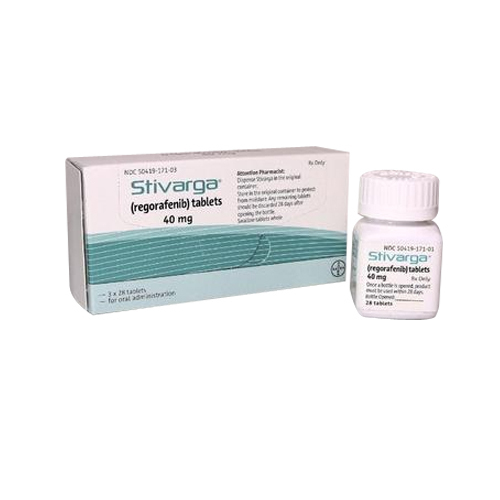

Price:
- 50
- 100
- 200
- 250
- 500
- 1000+
More Products in Anti Cancer Medicine Category
Geftinat Gefitinib Tablets
Price 4000 INR / Box
Minimum Order Quantity : 100 Boxes
Origin : India
Storage Instructions : Store in a cool dry place. Protect from direct sunlight.
Dosage Form : As Per Suggestion
Shelf Life : 2 Years
Ematra Tretinoin Capsules
Price 7500 INR / Box
Minimum Order Quantity : 100 Boxes
Origin : India
Storage Instructions : Store in a cool dry place. Protect from direct sunlight.
Dosage Form : As Per Suggestion
Shelf Life : 2 Years
Pomalid Pomalidomide 1mg
Price 9000 INR / Box
Minimum Order Quantity : 10 Boxes
Origin : India
Storage Instructions : Cool & Dry Place
Dosage Form : As Per Suggestion
Shelf Life : 2 Years
Tykerb Tablet
Minimum Order Quantity : 1 Box
Origin : India
Storage Instructions : Cool & Dry Place
Dosage Form : As Per Suggestion
Shelf Life : 2 Years
 |
HEET HEALTHCARE PVT. LTD.
All Rights Reserved.(Terms of Use) Developed and Managed by Infocom Network Private Limited. |

 Send Inquiry
Send Inquiry English
English Spanish
Spanish French
French German
German Italian
Italian Chinese (Simplified)
Chinese (Simplified) Japanese
Japanese Korean
Korean Arabic
Arabic Portuguese
Portuguese Send Inquiry
Send Inquiry
